
The Enchanting Oasis of Pushkar
Nestled in the heart of Rajasthan, Pushkar is a vibrant and enchanting town that beckons travelers with its unique blend of spirituality, culture, and natural beauty. Known for its sacred Pushkar Lake, this town is a major pilgrimage site for Hindus, attracting thousands of devotees who come to take a dip in its holy waters. The lake is surrounded by 52 ghats, each with its own story and significance, creating a serene and mystical atmosphere. Pushkar is also famous for its annual camel fair, which is one of the largest and most colorful livestock fairs in the world. During this time, the town transforms into a bustling hub of activity, with traders, performers, and tourists from all over the globe coming together to witness this spectacular event. The fairground is filled with the sounds of folk music, the aroma of local delicacies, and the sight of elaborately decorated camels, making it an unforgettable experience. Beyond its religious and cultural significance, Pushkar offers a range of activities for the adventurous traveler. You can explore the surrounding desert on a camel safari, hike up to the Savitri Temple for panoramic views of the town, or simply wander through the narrow streets lined with colorful bazaars and quaint cafes. The town's laid-back vibe, combined with its rich heritage and natural beauty, makes Pushkar a must-visit destination for anyone traveling through Rajasthan.
Local tips in Pushkar
- Visit Pushkar during the annual Camel Fair in November for a truly unique experience.
- Take a dip in the holy Pushkar Lake to participate in the local ritual and experience the spiritual ambiance.
- Hike up to the Savitri Temple early in the morning to enjoy a stunning sunrise view over Pushkar.
- Explore the local bazaars for unique handicrafts, jewelry, and textiles that make perfect souvenirs.
- Try the local cuisine, especially the traditional Rajasthani thali and street food like kachori and malpua.
The Enchanting Oasis of Pushkar
Nestled in the heart of Rajasthan, Pushkar is a vibrant and enchanting town that beckons travelers with its unique blend of spirituality, culture, and natural beauty. Known for its sacred Pushkar Lake, this town is a major pilgrimage site for Hindus, attracting thousands of devotees who come to take a dip in its holy waters. The lake is surrounded by 52 ghats, each with its own story and significance, creating a serene and mystical atmosphere. Pushkar is also famous for its annual camel fair, which is one of the largest and most colorful livestock fairs in the world. During this time, the town transforms into a bustling hub of activity, with traders, performers, and tourists from all over the globe coming together to witness this spectacular event. The fairground is filled with the sounds of folk music, the aroma of local delicacies, and the sight of elaborately decorated camels, making it an unforgettable experience. Beyond its religious and cultural significance, Pushkar offers a range of activities for the adventurous traveler. You can explore the surrounding desert on a camel safari, hike up to the Savitri Temple for panoramic views of the town, or simply wander through the narrow streets lined with colorful bazaars and quaint cafes. The town's laid-back vibe, combined with its rich heritage and natural beauty, makes Pushkar a must-visit destination for anyone traveling through Rajasthan.
When is the best time to go to Pushkar?
Iconic landmarks you can’t miss
Jagatpita Shri Brahma Mandir
Explore the unique Jagatpita Shri Brahma Mandir, the world's only temple dedicated to Lord Brahma, nestled in the spiritual town of Pushkar, Rajasthan.
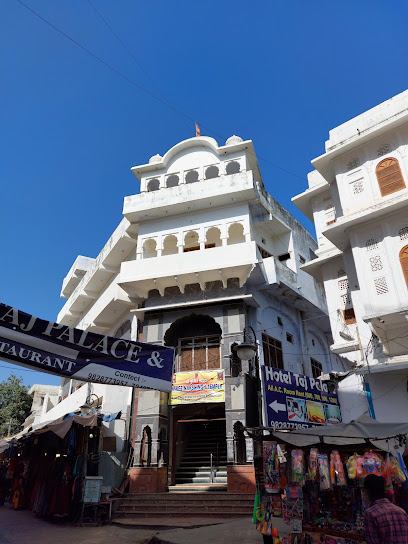
Savitri Mata Temple
Discover the serene beauty and spiritual essence of Savitri Mata Temple, a must-visit Hindu temple in Pushkar, Rajasthan.
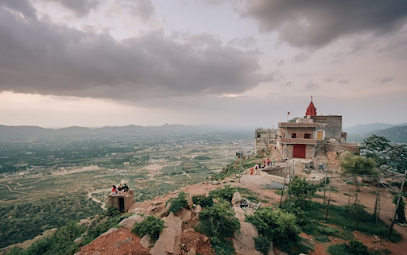
Pushkar Lake
Explore the tranquil beauty and spiritual significance of Pushkar Lake, a must-visit destination in Rajasthan, surrounded by rich culture and history.
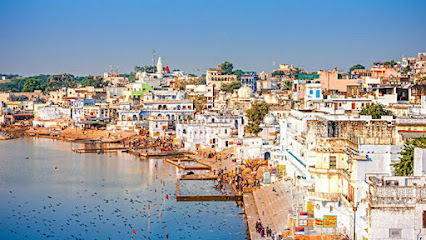
Pushkar desert camel safarl
Explore the stunning Pushkar desert on a camel safari – an unforgettable adventure blending culture, nature, and breathtaking landscapes in Rajasthan.
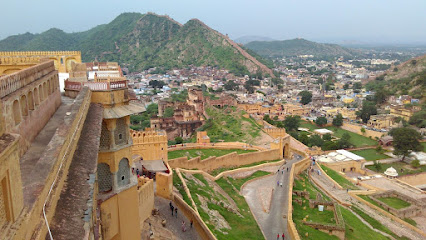
Aaram Baagh by Pachar Group, Pushkar
Experience the tranquil beauty and rich culture of Pushkar at Aaram Baagh by Pachar Group, a luxurious resort hotel nestled in the heart of Rajasthan.

Gau Ghat
Explore the spiritual heart of Pushkar at Gau Ghat, a revered Hindu temple offering serene views and vibrant cultural experiences.
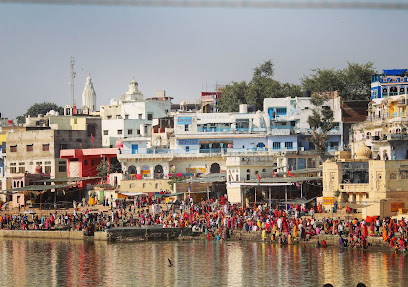
Pushkar Desert Safari
Embark on an unforgettable journey through the enchanting Pushkar Desert, where adventure and culture meet in the heart of Rajasthan.
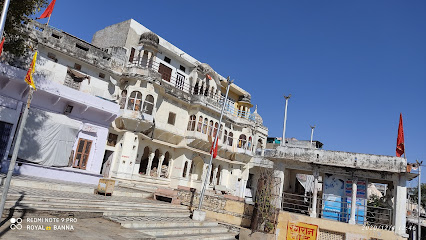
Gurudwara Sahib - Pushkar (Ajmer)
Explore the spiritual heart of Pushkar at Gurudwara Sahib, a serene Sikh temple offering peace, community, and rich cultural experiences.
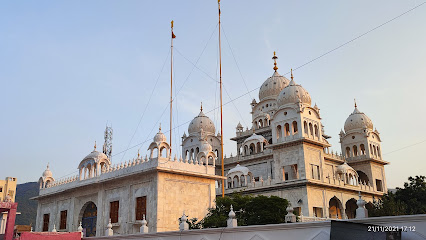
Hotel Pushkar Palace
Discover the serene elegance of Hotel Pushkar Palace, your ideal escape near Pushkar Lake in Rajasthan, blending comfort with cultural charm.
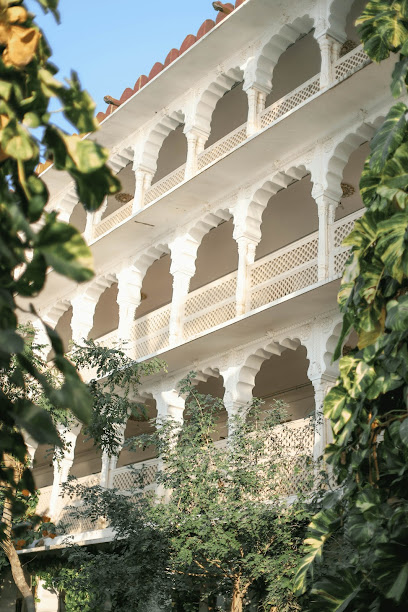
Pushkar Mela
Explore the vibrant Pushkar Mela, an iconic festival in Rajasthan showcasing rich traditions, cultural performances, and a lively marketplace.
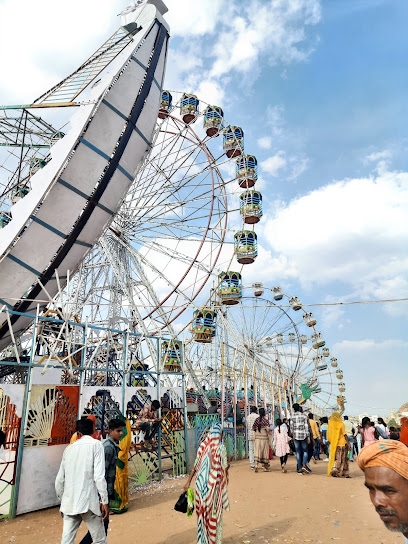
Gulaab Niwaas Palace
Experience the royal charm of Gulaab Niwaas Palace in Pushkar, a luxurious hotel blending rich history with modern comforts in a serene setting.

Pushkar Fort - Luxury Heritage Resort
Discover the elegance of Pushkar Fort, a luxury heritage resort in Rajasthan, where tradition meets contemporary comfort amidst stunning landscapes.
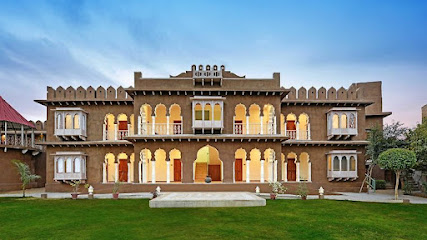
Brahma Ghat
Explore Brahma Ghat, a revered Hindu temple in Pushkar, where spirituality meets stunning natural beauty, enriching your travel experience in Rajasthan.
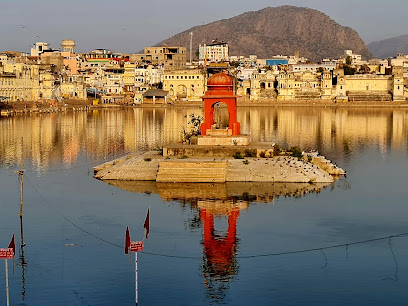
Sand Dunes Pushkar Tourist Places
Discover the breathtaking allure of the Sand Dunes in Pushkar, where adventure meets rich cultural heritage amid stunning desert landscapes.
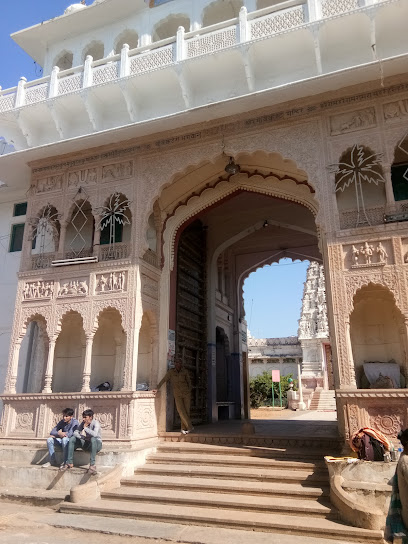
The Pushkar route (Sightseeing ,City Walking & Free Walking Tours)
Discover the spiritual heart of Rajasthan with The Pushkar Route, a unique travel experience filled with culture, history, and local traditions.
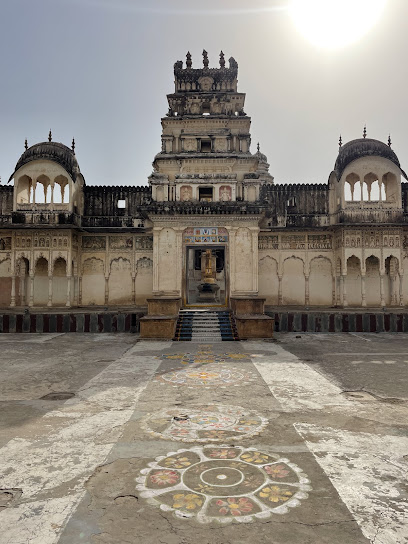
Unmissable attractions to see
Jagatpita Shri Brahma Mandir
Explore the spiritual heart of Pushkar at Jagatpita Shri Brahma Mandir, a unique temple dedicated to Lord Brahma, offering rich cultural experiences.
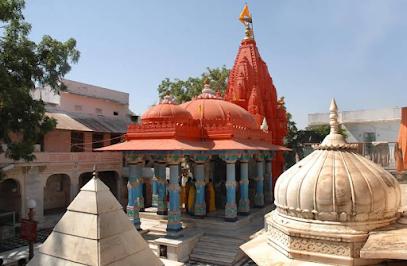
Adhai Din Ka Jhopra - Ajmer
Explore the mesmerizing Adhai Din Ka Jhopra in Ajmer, an architectural marvel that beautifully blends history and spirituality.
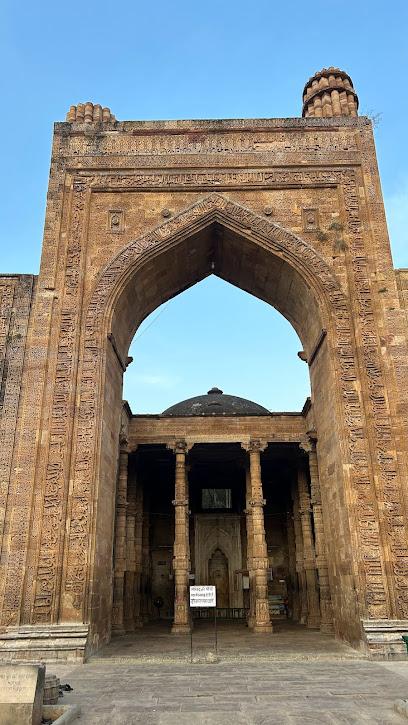
Shree Savitri Mata Mandir
Discover the serene beauty and spiritual essence of Shree Savitri Mata Mandir, a must-visit temple in Pushkar offering breathtaking views and rich culture.
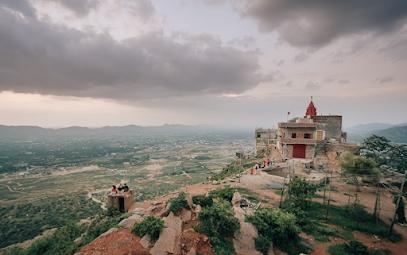
Soni Ji Ki Nasiya Jain Temple
Discover the architectural beauty and spiritual serenity of Soni Ji Ki Nasiya Jain Temple in Ajmer, a must-visit cultural gem in Rajasthan.
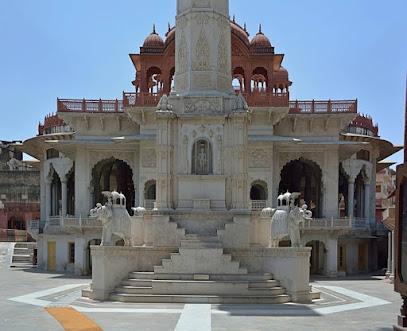
Ajmer Fort
Explore the historic Ajmer Fort, a magnificent symbol of Rajasthan's heritage, offering breathtaking views and rich cultural experiences.
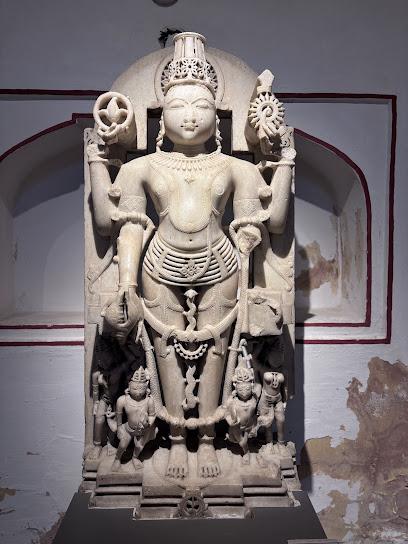
Pushkar Desert Safari
Experience the thrill of Pushkar Desert Safari, a captivating blend of adventure, culture, and stunning desert landscapes in Rajasthan.
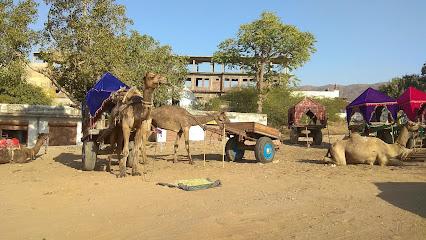
Gurudwara Sahib - Pushkar (Ajmer)
Experience the spiritual serenity at Gurudwara Sahib, a Sikh temple in Pushkar, Rajasthan, where community and culture thrive in harmony.
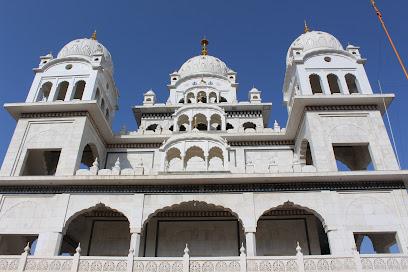
Brahma Ghat
Discover the spiritual serenity of Brahma Ghat in Pushkar, a sacred Hindu temple surrounded by breathtaking scenery and cultural richness.
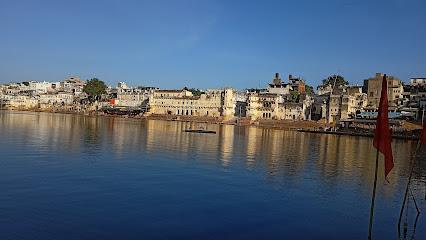
Savitri Devi Temple, Pushkar
Discover spiritual tranquility and breathtaking views at Savitri Devi Temple in Pushkar, a must-visit for every traveler in Rajasthan.
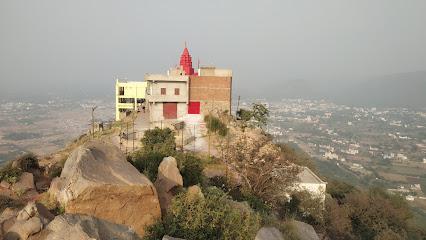
Sand Dunes Pushkar Tourist Places
Discover the enchanting Sand Dunes of Pushkar, a perfect blend of adventure and cultural richness in Rajasthan's majestic desert landscape.
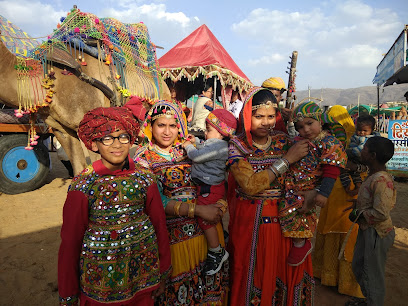
Xcapade Adventure Park Pushkar - Adventure, Zipline Atv, Paintball, Adventure Park
Discover the ultimate adventure experience at Xcapade Adventure Park Pushkar, where thrill-seekers unite for ziplining, paintball, and more.
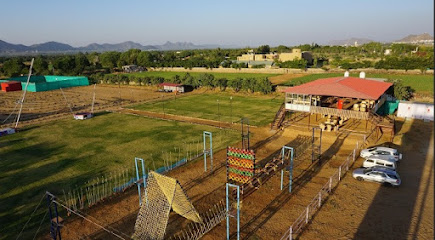
Rangji Temple
Experience the divine beauty of Rangji Temple in Pushkar, where spirituality meets stunning architecture in a serene setting.
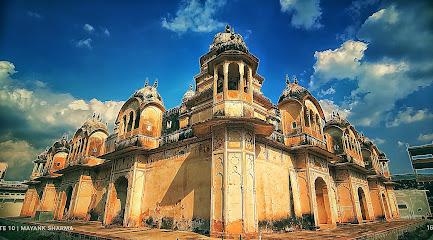
Dharma camel safari
Explore the breathtaking Thar Desert with Dharma Camel Safari in Pushkar, where adventure meets the rich culture of Rajasthan.
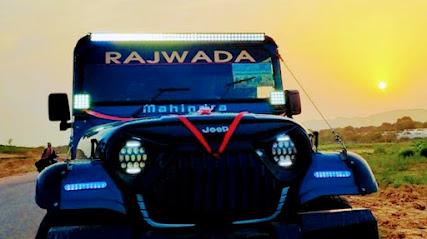
Varaha Temple
Explore the spiritual heart of Pushkar at the enchanting Varaha Temple, a masterpiece of Hindu architecture and devotion.
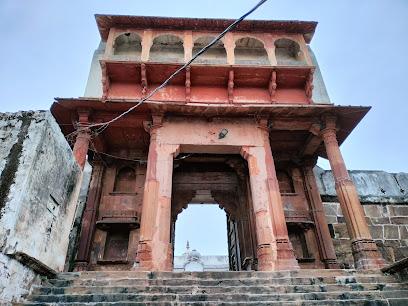
National Sand Art Park
Explore the National Sand Art Park in Pushkar, Rajasthan, where stunning sand sculptures and natural beauty create a unique and tranquil experience for all visitors.
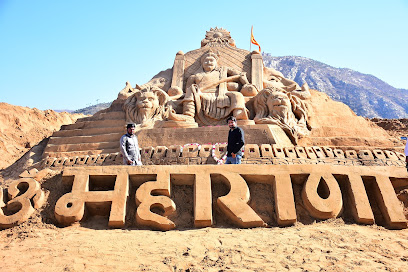
Essential places to dine
La Pizzaria Restaurant
Discover La Pizzaria: A pizza lover's paradise in Pushkar offering authentic Italian flavors in a cozy setting.
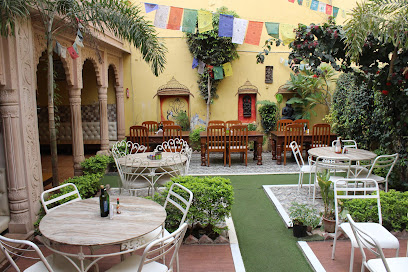
Rainbow Restaurant
Experience delightful fast food and family-friendly dining at Rainbow Restaurant in the heart of Pushkar.
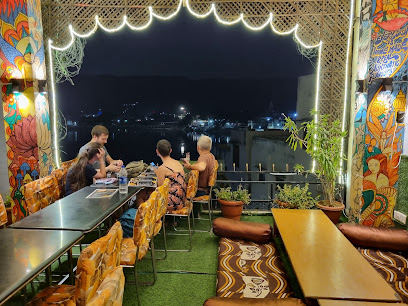
Radhe Ji Restauraunt
Experience authentic Indian vegetarian cuisine at Radhe Ji Restaurant in Pushkar - where every meal is a celebration of flavors.
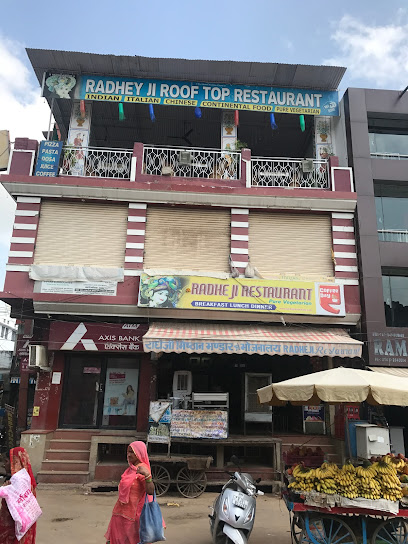
Ganga Laffa & Falafel Restaurant
Experience authentic Israeli cuisine at Ganga Laffa & Falafel Restaurant in Pushkar – where fast food meets flavorful traditions.
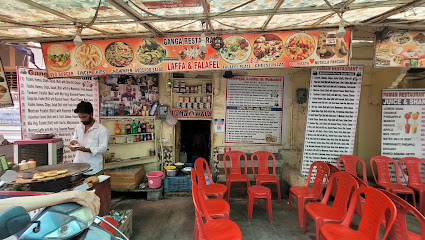
Cafe Lake View – Best Pizza and Multicuisine Restaurant | Top Coffee Cafe in Pushkar
Discover Café Lake View in Pushkar – your go-to spot for delicious multicuisine meals and stunning lake views.
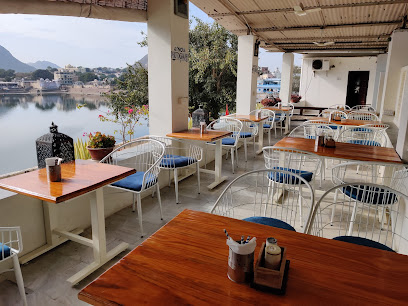
IL Padrino Pizza Garden Restaurant And Hotel
Experience authentic Italian cuisine at IL Padrino Pizza Garden Restaurant And Hotel in Pushkar – where flavor meets serenity.
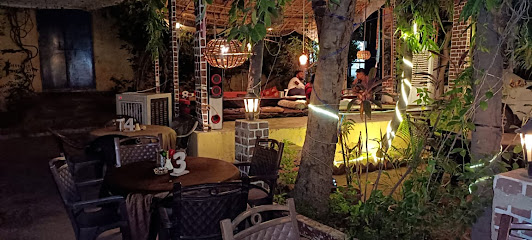
Hotel Sunset & Roof Top Restauant
Experience breathtaking sunsets while enjoying delectable cuisine at Hotel Sunset & Rooftop Restaurant in Pushkar.

Om Shiva Garden Restaurant
Experience authentic Italian cuisine blended with local flavors at Om Shiva Garden Restaurant in Pushkar's enchanting garden setting.
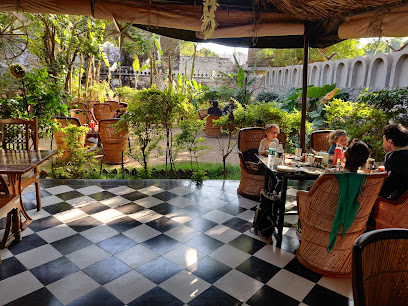
R.R Hotel Bar Non Veg Restaurant and take away
Experience the best of grilled Indian cuisine at R.R Hotel Bar Non Veg Restaurant in Pushkar - a true culinary delight.
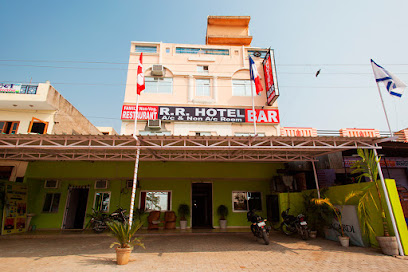
MAMASITA CAFE
Discover the vibrant flavors at Mamasita Cafe in Pushkar – where Indian cuisine meets international flair.
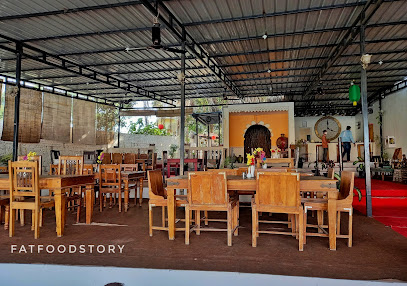
Real Out Of The Blue Restaurant
Experience the flavors of Rajasthan at Real Out Of The Blue Restaurant in Pushkar - where culinary tradition meets modern comfort.
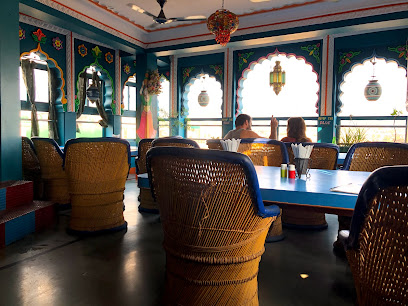
The Laughing Buddha Vegan Cafe Pushkar
Experience delicious vegan cuisine in a cozy atmosphere at The Laughing Buddha Vegan Cafe in Pushkar - perfect for health-conscious travelers.
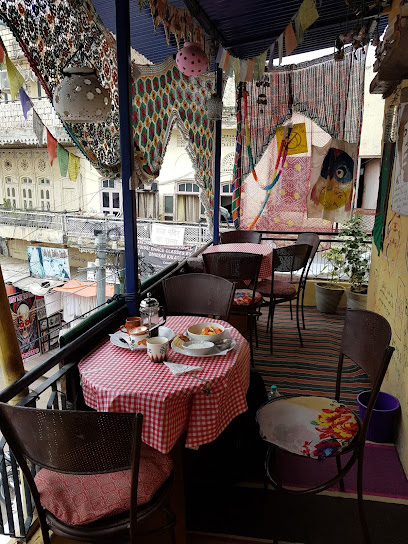
Shiva Laffa & Falafel Restaurant Pushkar
Experience authentic Middle Eastern flavors at Shiva Laffa & Falafel Restaurant in Pushkar - a must-visit culinary destination.
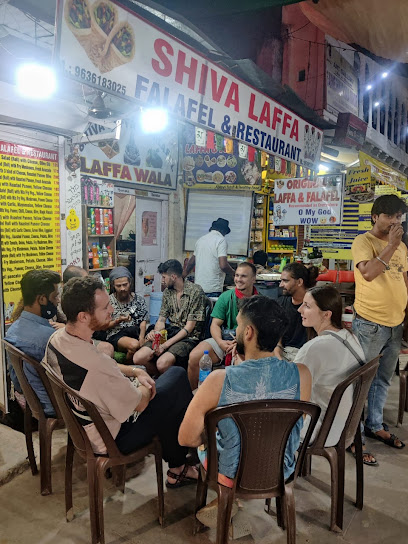
Mango Heart Rock Restaurant
Discover authentic Rajasthani flavors at Mango Heart Rock Restaurant in Pushkar, where culinary delights meet vibrant local culture.
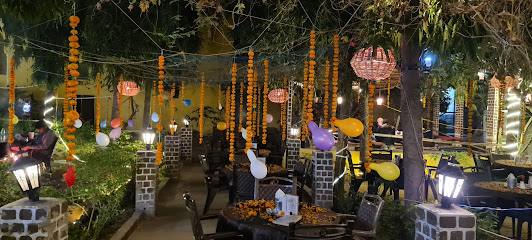
Raju Terrace Garden Restaurent
Experience authentic Indian cuisine amidst lush gardens at Raju Terrace Garden Restaurant in Pushkar.
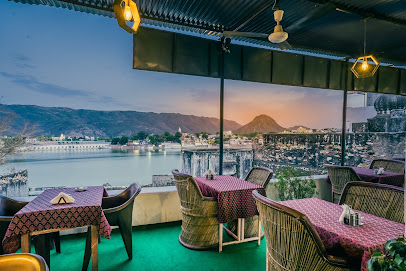
Markets, malls and hidden boutiques
Robin Silver Shop
Explore the exquisite craftsmanship of silver jewelry at Robin Silver Shop, a hidden gem in the heart of Pushkar, Rajasthan.
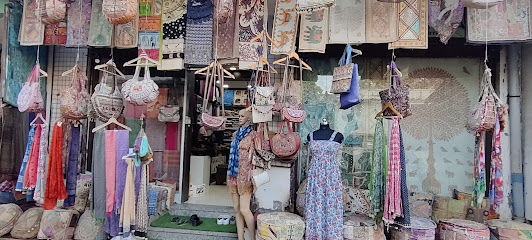
Sanjay Handicraft pushkar
Discover the rich artistry of Rajasthan at Sanjay Handicraft in Pushkar, where every piece tells a story of tradition and creativity.
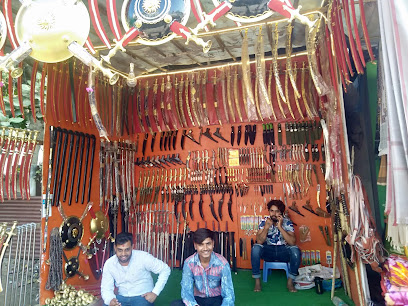
Parvati Print And Gift Gallery
Explore the essence of Rajasthan at Parvati Print And Gift Gallery, where unique gifts and authentic handicrafts await your discovery.
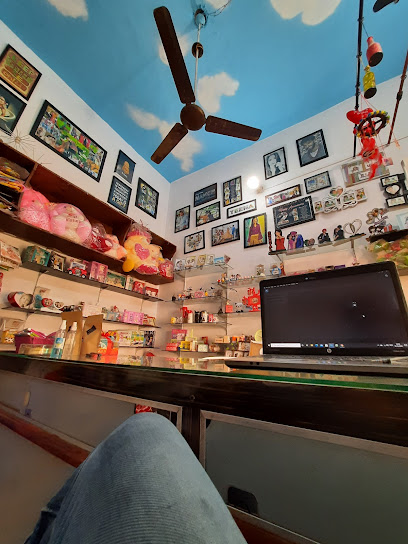
Art gallery Sarweshwar kala mandir
Explore the vibrant artistry of Rajasthan at Sarweshwar Kala Mandir, a premier art gallery and gift shop in Pushkar, perfect for art lovers and souvenir seekers.
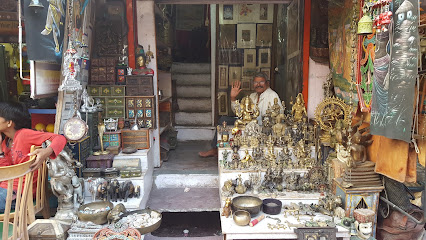
Vijay BabaBag
Explore the artistic charm of Vijay BabaBag in Pushkar, where every handmade item tells a story of Rajasthan's rich culture.
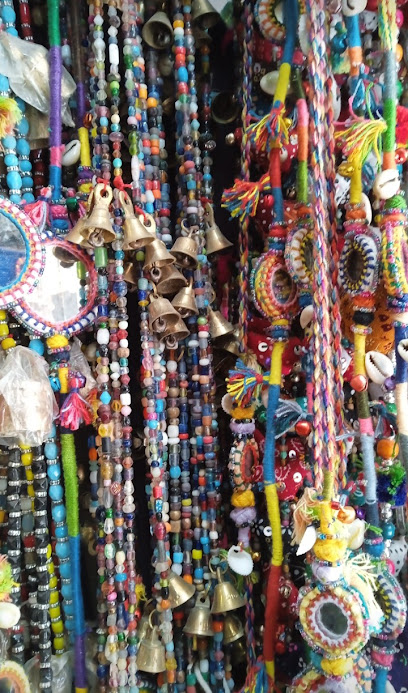
Antique Boutique
Explore Antique Boutique in Pushkar for exquisite handcrafted jewelry and unique accessories reflecting Rajasthani artistry.
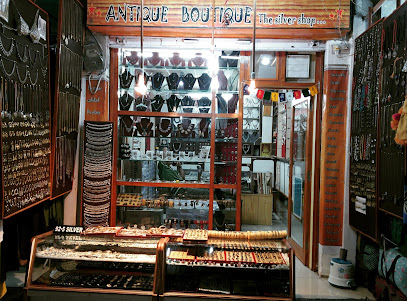
Other Side Boutique Pushkar
Experience the charm of Rajasthan at Other Side Boutique - a unique clothing accessories store in Pushkar near scenic Lake Bridge.
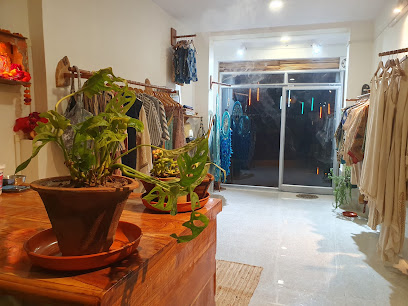
Sanskritam Fashion Gallery
Explore the rich heritage of Rajasthan through stunning traditional attire at Sanskritam Fashion Gallery in Pushkar, a must-visit for fashion enthusiasts.
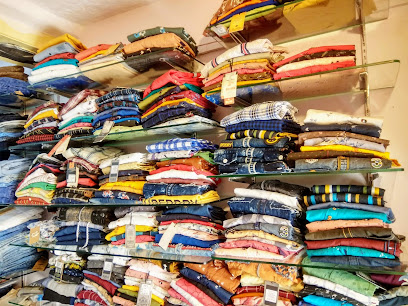
Om Pushkar Natural Incens Home
Discover the enchanting world of natural incense at Om Pushkar Natural Incens Home, where tradition meets fragrance in the heart of Pushkar.
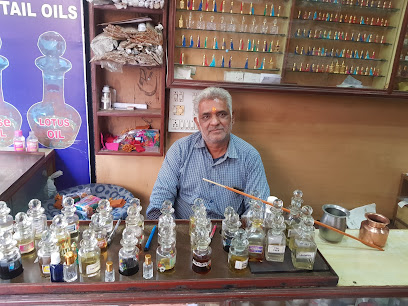
Shivay gift gallery
Explore Shivay Gift Gallery in Pushkar, a unique gift shop offering handcrafted treasures that embody the spirit of Rajasthan.
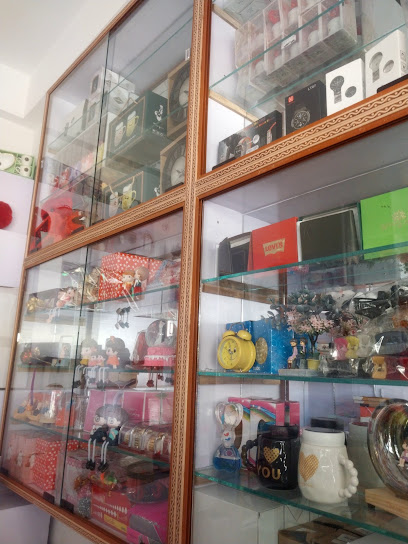
SHUBHAM FASHION
Discover the essence of Rajasthan with unique clothing at Shubham Fashion in Pushkar, where tradition meets modern style.
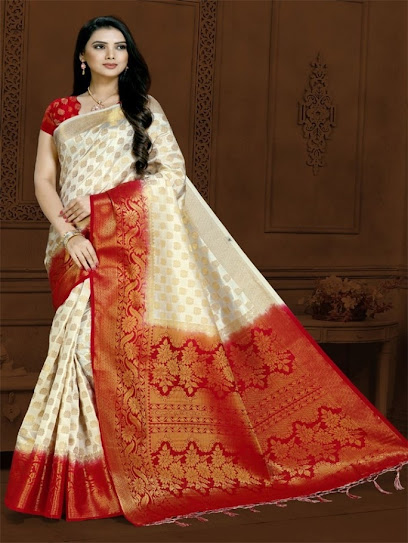
Yash handicrafts
Discover the vibrant artistry of Rajasthan at Yash Handicrafts, your go-to destination for authentic clothing and unique handicrafts in Pushkar.
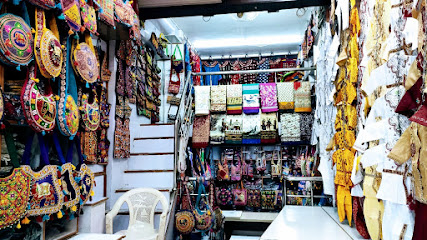
FAB PUSHKAR
Discover the vibrant essence of Rajasthan at FAB Pushkar, where traditional craftsmanship meets modern shopping in a unique store experience.
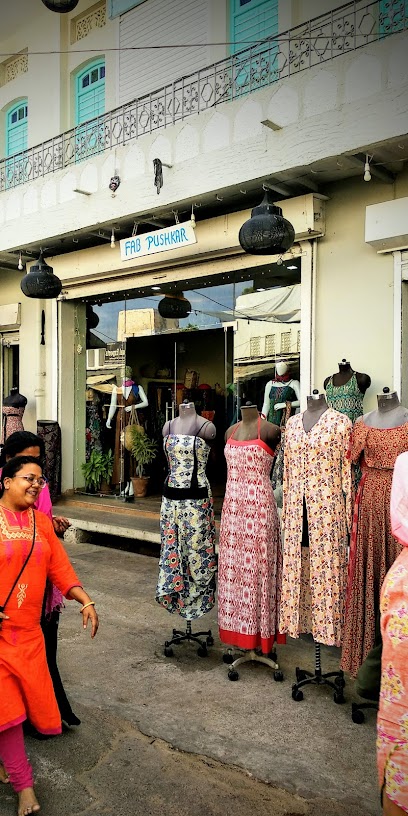
Salasar Balaji Handicraft
Explore the vibrant world of Rajasthani handicrafts at Salasar Balaji Handicraft, a treasure trove of authentic artistry and unique souvenirs in Pushkar.

LOVE HANDICRAFTS
Discover the vibrant craftsmanship of Rajasthan at LOVE HANDICRAFTS - a hub for exquisite handicrafts and cosmetics.
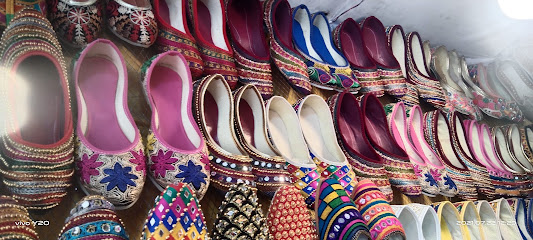
Essential bars & hidden hideouts
Cafe Lake View – Best Pizza and Multicuisine Restaurant | Top Coffee Cafe in Pushkar
Discover the best pizza and multicuisine delights at Cafe Lake View, Pushkar's top dining destination with stunning lake views.
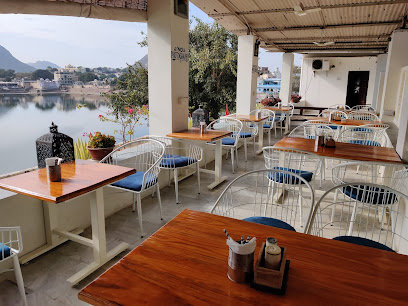
Hotel Sunset & Roof Top Restauant
Experience the perfect blend of comfort and exquisite dining at Hotel Sunset & Rooftop Restaurant in Pushkar, Rajasthan. Enjoy breathtaking views and delightful flavors.

Om Shiva Garden Restaurant
Savor the flavors of Italy amidst the serene surroundings of Pushkar at Om Shiva Garden Restaurant, a culinary delight for every traveler.
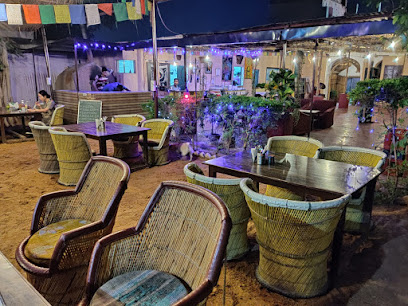
R.R Hotel Bar Non Veg Restaurant and take away
Experience the authentic taste of Rajasthan at R.R Hotel Bar Non Veg Restaurant, where grilled delights meet traditional Indian cuisine in a cozy ambiance.
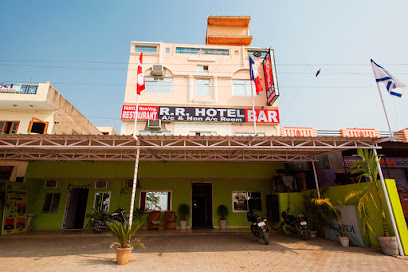
nirvana rooftop Tibetan Kitchen
Discover authentic Tibetan flavors at Nirvana Rooftop Tibetan Kitchen in Pushkar, where stunning views meet a unique dining experience.
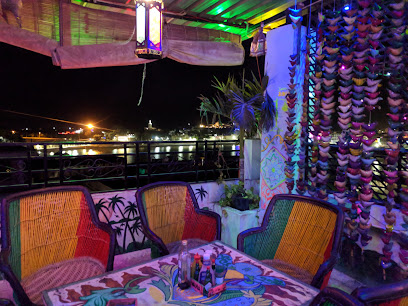
Funky Monkey Cafe& Garden Restaurant
Discover a blend of Italian cuisine and local flavors in a serene garden setting at Funky Monkey Cafe & Garden Restaurant in Pushkar, Rajasthan.
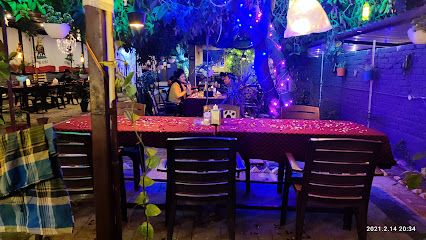
Waah Shakers - Best Cafe & Restro in Pushkar
Discover Waah Shakers in Pushkar: A culinary haven serving delightful dishes in a cozy atmosphere, perfect for tourists and locals alike.
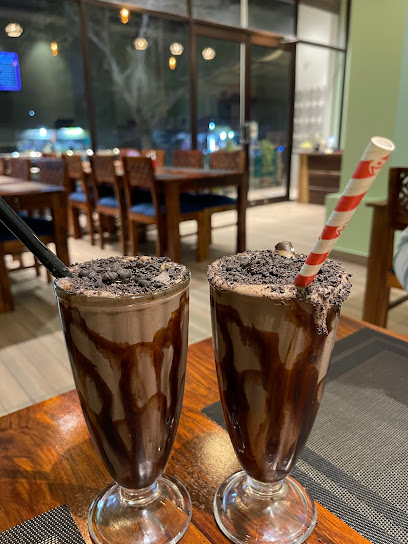
Funky Monkey Cafe
Discover Funky Monkey Cafe in Pushkar – a vibrant culinary retreat offering exquisite breakfast, coffee, and cakes in a lively atmosphere.
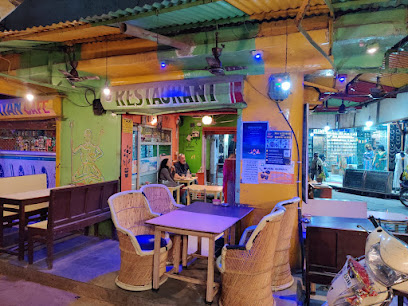
R K RESTO BEER BAR
Experience the vibrant atmosphere and friendly service at R K Resto Beer Bar in Pushkar, where every sip tells a story of local culture.
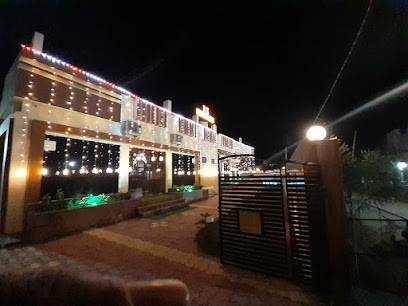
BABA Hostel
Experience the vibrant flavors of Tibetan and Indian cuisine at BABA Hostel in Pushkar, a perfect culinary retreat amidst nature's beauty.
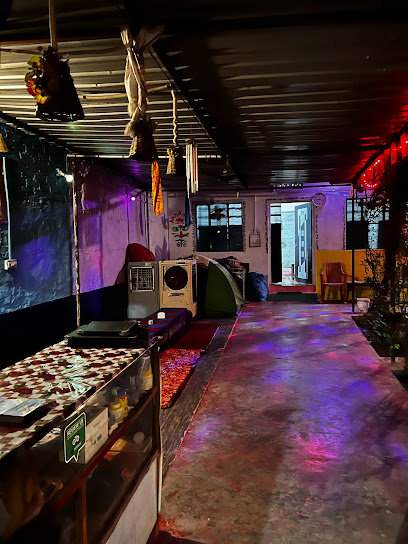
Om Baba Roof Top Restaurant
Discover the breathtaking views and delicious flavors at Om Baba Roof Top Restaurant in Pushkar, a perfect blend of ambiance and culinary delight.
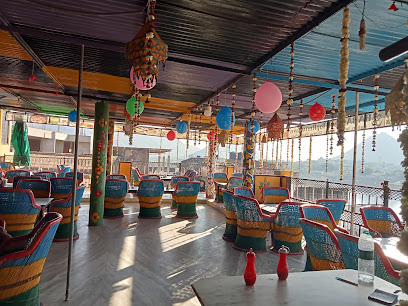
Hotel Moon Dance Garden & Restaurent
Savor the essence of Rajasthan at Hotel Moon Dance Garden & Restaurant, where vegetarian cuisine meets a tranquil garden setting.
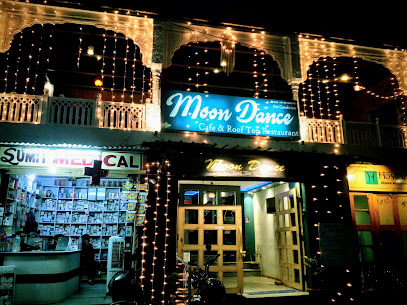
U Turn Roof Top restaurant
Experience breathtaking views and authentic flavors at U Turn Rooftop Restaurant in Pushkar, where culinary delight meets serene ambiance.
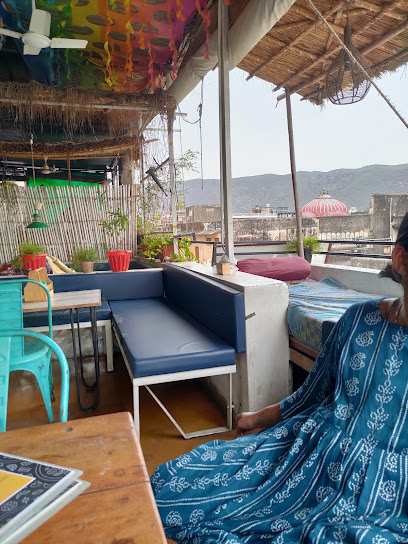
Puskar wine beer shop
Discover the vibrant flavors of Rajasthan at Puskar Wine Beer Shop, where local and international beverages meet in a cozy atmosphere.
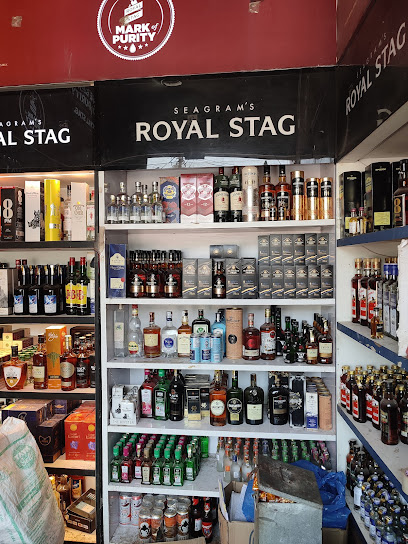
Travel experiences inspired by this city
Explore more travel diariesLocal Phrases
-
- Helloनमस्ते
[Namaste] - Goodbyeअलविदा
[Alvida] - Yesहां
[Haan] - Noनहीं
[Nahi] - Please/You're welcomeकृपया
[Kripya] - Thank youधन्यवाद
[Dhanyavad] - Excuse me/Sorryमाफ़ कीजिए
[Maaf kijiye] - How are you?आप कैसे हैं?
[Aap kaise hain?] - Fine. And you?ठीक हूँ। आप सुनाइए।
[Theek hoon. Aap sunaiye.] - Do you speak English?क्या आप अंग्रेज़ी बोलते हैं?
[Kya aap angrezi bolte hain?] - I don't understandमैं समझा नहीं
[Main samjha nahi]
- Helloनमस्ते
-
- I'd like to see the menu, pleaseकृपया मेनू दिखाइए
[Kripya menu dikhaiye] - I don't eat meatमैं मांस नहीं खाता
[Main maans nahi khata] - Cheers!चियर्स!
[Cheers!] - I would like to pay, pleaseकृपया मैं भुगतान करना चाहूँ
[Kripya main bhugtan karna chaahoon]
- I'd like to see the menu, pleaseकृपया मेनू दिखाइए
-
- Help!बचाओ!
[Bachao!] - Go away!चले जाओ!
[Chale jao!] - Call the Police!पुलिस को बुलाओ!
[Police ko bulao!] - Call a doctor!डॉक्टर को बुलाओ!
[Doctor ko bulao!] - I'm lostमैं खो गया हूँ
[Main kho gaya hoon] - I'm illमुझे बीमारी है
[Mujhe bimari hai]
- Help!बचाओ!
-
- I'd like to buy...मैं खरीदना चाहूंगा...
[Main khareedna chahunga...] - I'm just lookingमैं बस देख रहा हूँ
[Main bas dekh raha hoon] - How much is it?यह कितना है?
[Yeh kitna hai?] - That's too expensiveयह बहुत महंगा है
[Yeh bahut mehnga hai] - Can you lower the price?क्या आप कीमत कम कर सकते हैं?
[Kya aap keemat kam kar sakte hain?]
- I'd like to buy...मैं खरीदना चाहूंगा...
-
- What time is it?अब कितने बजे हैं?
[Ab kitne baje hain?] - It's one o'clockएक बज रहा है
[Ek baj raha hai] - Half past (10)दस बजे बीस मिनट बाद
[Das baje bees minute baad] - Morningसुबह
[Subah] - Afternoonदोपहर
[Dopahar] - Eveningशाम
[Shaam] - Yesterdayकल
[Kal] - Todayआज
[Aaj] - Tomorrowकल
[Kal] - 1एक
[Ek] - 2दो
[Do] - 3तीन
[Teen] - 4चार
[Char] - 5पांच
[Paanch] - 6छह
[Chhah] - 7सात
[Saath] - 8आठ
[Aath] - 9नौ
[Nau] - 10दस
[Das]
- What time is it?अब कितने बजे हैं?
-
- Where's a/the...?एक/यहाँ... कहाँ है?
[Ek/Yahaan... kahan hai?] - What's the address?पता क्या है?
[Pata kya hai?] - Can you show me (on the map)?क्या आप मुझे दिखा सकते हैं (नक्शे पर)?
[Kya aap mujhe dikhha sakte hain (naksha par)?] - When's the next (bus)?अगली (बस) कब है?
[Agli (bus) kab hai?] - A ticket (to ....)एक टिकट (...के लिए)
[Ek ticket (...ke liye)]
- Where's a/the...?एक/यहाँ... कहाँ है?
History of Pushkar
-
Pushkar is often associated with Hindu mythology. According to legend, the town was created when Lord Brahma, the god of creation, dropped a lotus flower to the earth. The flower landed in Pushkar, creating the Pushkar Lake. This lake is considered one of the most sacred lakes in India, and it is surrounded by numerous temples and ghats (steps leading to the water).
-
Pushkar has been mentioned in various ancient texts and inscriptions, indicating its historical importance. It served as a significant trade center during ancient times. The town's strategic location on the trade route contributed to its prosperity and prominence in the region.
-
One of the most famous cultural events in Pushkar is the Pushkar Fair, also known as Pushkar Camel Fair. This annual event, which takes place in November, is one of the world's largest livestock fairs. It attracts thousands of tourists and pilgrims who come to witness the livestock trading, camel races, traditional music, dance performances, and other cultural activities.
-
Pushkar is home to several architectural marvels, including the Brahma Temple, which is one of the few temples dedicated to Lord Brahma in the world. The temple's distinctive red spire and the image of a swan (Brahma's vehicle) are notable features. Other significant temples include the Savitri Temple, which offers panoramic views of the town, and the Varaha Temple, dedicated to Lord Vishnu in his boar incarnation.
-
During the British colonial period, Pushkar retained its religious and cultural significance. The British recognized the town's importance and respected its sacred status. This era also saw an influx of European travelers and scholars who documented and studied the town's rich history and culture.
-
In contemporary times, Pushkar has evolved into a popular tourist destination, attracting visitors from around the globe. Despite modernization, the town has managed to preserve its traditional charm and spiritual essence. The vibrant markets, bustling with handicrafts, jewelry, and textiles, add to the town's allure.
Pushkar Essentials
-
Pushkar is located in the Ajmer district of Rajasthan, India. The nearest airport is Jaipur International Airport, approximately 150 kilometers away. From Jaipur, you can take a taxi or a bus to Pushkar, which usually takes around 3 hours by road. Alternatively, you can take a train to Ajmer Railway Station, which is about 15 kilometers from Pushkar. From Ajmer, local buses, taxis, and auto-rickshaws are available for the short drive to Pushkar.
-
Once in Pushkar, the town is small enough to explore on foot. Auto-rickshaws and cycle-rickshaws are popular and affordable ways to get around. For longer distances, taxis are available. Renting a scooter or a bicycle can be a convenient option for those who prefer more flexibility. Be aware that traffic can be chaotic, so always stay alert and follow local traffic rules.
-
The official currency in India is the Indian Rupee (INR). While credit and debit cards are accepted in many hotels, restaurants, and larger shops, it is advisable to carry cash for smaller establishments and street vendors. ATMs are available in Pushkar, but it's wise to withdraw a sufficient amount of cash beforehand, especially during festivals when ATMs may run out of money.
-
Pushkar is generally safe for tourists, but it is important to take standard precautions. Avoid walking alone late at night, especially in poorly lit areas. Always keep an eye on your belongings in crowded places, such as markets and festivals. While there are no specific high-crime areas targeting tourists, scams and petty theft can occur. Stay vigilant and be cautious of unsolicited offers or overly friendly strangers.
-
In case of an emergency, dial 100 for police assistance and 108 for medical emergencies. Pushkar has a local police station and several medical facilities. It is highly recommended to have travel insurance that covers medical emergencies. For minor health issues, there are pharmacies in the town where you can purchase over-the-counter medications.
-
Fashion: Do dress modestly, especially when visiting religious sites. Avoid wearing revealing clothing. Religion: Do respect local customs and traditions. Always remove your shoes before entering temples. Public Transport: Do be respectful and give up your seat to elderly passengers. Don't eat or drink on public transport. Greetings: Do greet people with a 'Namaste,' a respectful gesture involving a slight bow with hands pressed together. Eating & Drinking: Do try local delicacies and accept food offerings graciously. Don't refuse hospitality, as it is considered impolite.
-
To experience Pushkar like a local, visit the local markets where you can buy traditional Rajasthani goods and handicrafts. Engage with locals, as they are often friendly and willing to share stories about the town's history and culture. Don't miss the Pushkar Camel Fair if you're visiting in November, as it offers a unique blend of cultural and animal trading events. For a serene experience, take a walk around Pushkar Lake at sunrise or sunset.
Trending Landmark in Pushkar
-
Jagatpita Shri Brahma Mandir
-
Savitri Mata Temple
-
Pushkar Lake
-
Pushkar desert camel safarl
-
Aaram Baagh by Pachar Group, Pushkar
-
Gau Ghat
-
Pushkar Desert Safari
-
Gurudwara Sahib - Pushkar (Ajmer)
-
Hotel Pushkar Palace
-
Pushkar Mela
-
Gulaab Niwaas Palace
-
Pushkar Fort - Luxury Heritage Resort
-
Brahma Ghat
-
Sand Dunes Pushkar Tourist Places
-
The Pushkar route (Sightseeing ,City Walking & Free Walking Tours)
Nearby Cities to Pushkar
-
Things To Do in Jaipur
-
Things To Do in Jodhpur
-
Things To Do in Ranthambore
-
Things To Do in Udaipur
-
Things To Do in Agra
-
Things To Do in Delhi
-
Things To Do in Gwalior
-
Things To Do in Jaisalmer
-
Things To Do in Ahmedabad
-
Things To Do in Bhopal
-
Things To Do in Vadodara
-
Things To Do in Multan
-
Things To Do in Rishikesh
-
Things To Do in Lahore
-
Things To Do in Faisalabad













